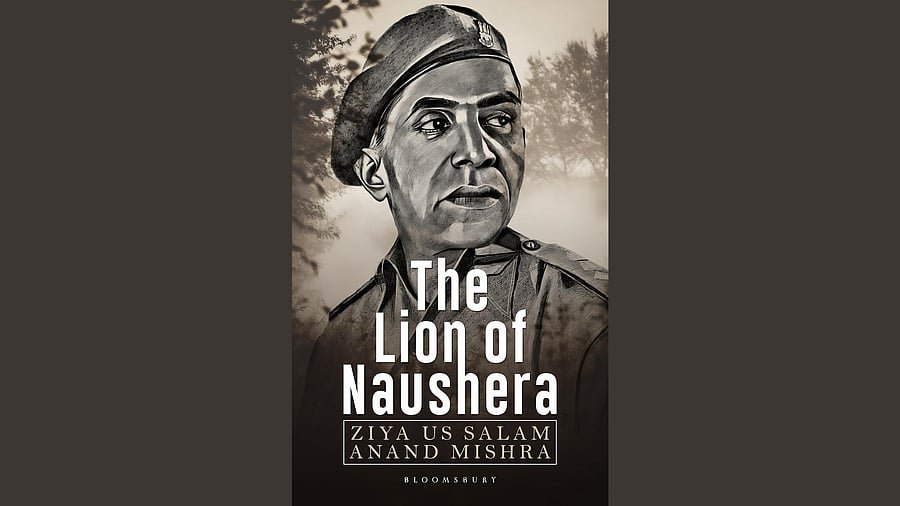
The Lion Of Naushera.
In 1948, India captured two strategic locations in Jammu & Kashmir — Jhangar and Naushera — all due to the leadership of a senior officer of the armed forces who fired on all cylinders during combat.
The officer was Brigadier Mohammed Usman, a selfless, brave soldier who gave his life for the country. What’s strikingly admirable is, at the time of Partition, he rejected Pakistan’s lucrative offers — the highest rank in their army, money and power — to remain in India, the land of his birth. “Love for India burned bright in Brigadier Usman’s heart, and everything Pakistan offered appeared to pale in comparison.”
This book by two senior journalists is more than a biography of Usman; it is an affirmation of the pluralist democracy of India, a telling reaffirmation that patriotism transcends religion. “The eyes of the world are on us … We must not falter; we must not fail them … India expects everyone to do his duty.” The book opens with those stirring lines of Usman’s special order just before the 1948 capture of Jhangar and Naushera, embodying the spirit of a man who earned the sobriquet ‘The Lion of Naushera’.
The narrative, in six parts, takes the reader on a captivating journey, dating back to 1912 when Usman was born, from his brief but extraordinary life to the heroic legacy he left behind. Woven into the story are historical, military and familial facts and insightful nuggets. Some rare photographs and newspaper clippings enhance the book’s appeal.
Born on 15 July 1912 in Bibipur in Mau district of Azamgarh division in Uttar Pradesh to a high-ranking police officer and a homemaker mother, Usman rebuffed the family’s wish to be a civil servant, opting instead to join the army.
He attended the Royal Military Academy at Sandhurst before joining the army in 1935, rising through the ranks rapidly. Usman came to be known as a man who would stand up not only in front of the enemy but also for his jawans.
The book delineates the tumultuous years of 1947-48, the violence and repeated incursions in Jammu & Kashmir by Pakistan and its capture of Jhangar.
Usman vowed not to sleep on a bed till he recaptured Jhangar and Naushera, which he accomplished in three months. But when he foiled Pakistani attempts to capture Jhangar again, he died in a 25-pounder shell attack on 3 July 1948, just 12 days before his 36th birthday. “I am dying, but let not the territory we were fighting for fall for the enemy,” were his last words.
He received a state funeral with Prime Minister Nehru, his entire cabinet and the three chiefs of the armed forces in attendance.
Usman remains the highest-ranking military officer to be killed in combat. He was awarded the Maha Vir Chakra posthumously for his valour.
Significantly, Usman went on to become an abiding icon of secularism for a nation often questioning its own identity. Here was a sterling example of a man who took great pride in his motherland, sacrificing his life for the nation. His life decries the sectarian jibes of “Babur ki aulad” (Babur’s progeny) or “Aurangzeb ki aulad” (Aurangzeb’s progeny). Usman’s followers reminded the divisive elements that they would be better off calling other Indians “Usman ki aulad” (Usman’s progeny). Ironically, Usman, who remained single, had no children.
Another sad irony is that Usman hailed from the Azamgarh area, which earned a dubious reputation after the 2008 Batla House encounter in Delhi. The two terrorists allegedly responsible for the attack are also said to be from the same region. However, as the authors rightfully point out, the region also produced for independent India a martyr who gave his life fighting Pakistan.
The book highlights how Usman’s rare heroism and sacrifice have been ignored by filmmakers. Some attempts were made, but they fizzled out either due to the absence of a heroine or the reluctance of Bollywood to cast Muslim men as patriotic heroes.
In these fraught times of divisiveness and communalism, this authentic and painstakingly researched book has not only rescued a largely forgotten hero from the mists of history, but it also serves as a powerful reminder that people of all faiths, castes and regions fought for India’s independence and to protect its borders.